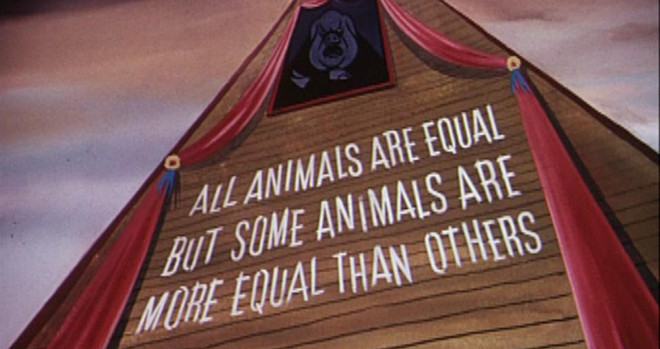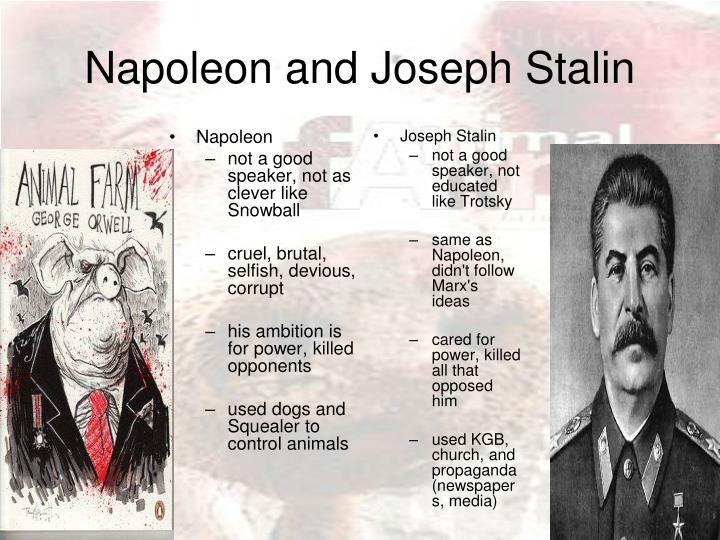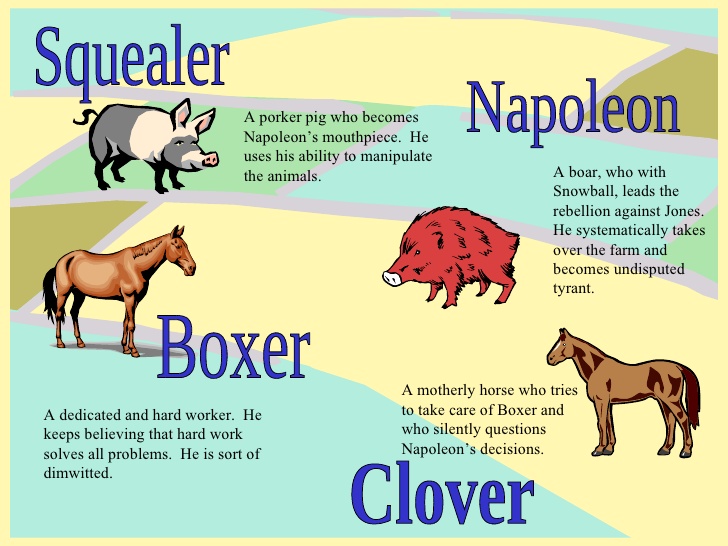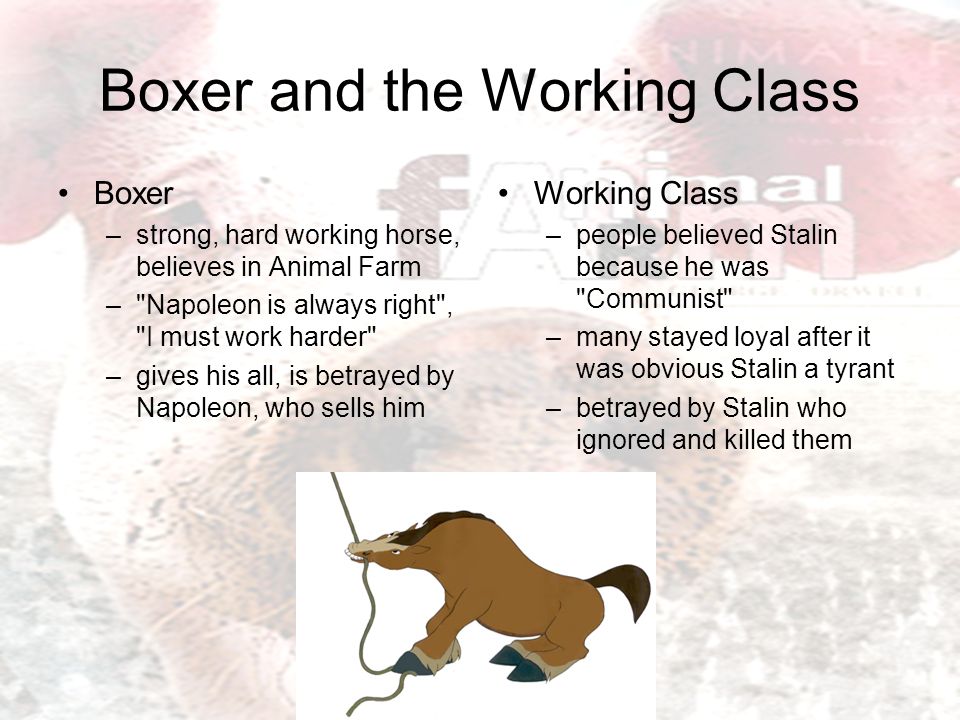Animal Farm

Q. Though written with Russian Revolution in mind, Animal Farm is a novel with universal appeal. Discuss.
Written in PEEL [Point, Evidence, Explanation and Link] format by BunPeiris
The Universality of Animal Farm Goes Unchallenged
Animal Farm (1946) written by George Orwell is a satirical fable. It reveals the ironical passage of a oppressive regime that yokes the human frailties of gullibility and credulity for the unending exploitation of its subjects. The plot of Animal Farm, though set in an unspecified time period in England, connects the dots with the most of the modern day irredeemably corrupt regimes and politicians hell bent on power, self-aggrandizement and nepotism on the way hoarding blood diamonds or bloodied gold. They loot the wealth of their own motherlands. Most of such scum of the earth could be from nominally democratic, yet in reality, either dictatorial or plutocratic regimes.

Orwell’s classic is written in the backdrop of Russian Revolution. Orwell himself declared that his main goal in Animal Farm was to reveal the myth of Russia being a socialist country: “On my return from Spain I thought of exposing the Soviet myth in a story that could be easily understood by almost anyone and which could be easily translated into other languages.” (G. Orwell)
However, notwithstanding the corresponding episodes and characters of Animal Farm with Stalin’s tsunami of inhuman suppression, Orwell’s novella brings about universal themes: power and corruption; gullibility and credulity; freedom and responsibility; language and logic; truth and falsehood; ignorance and indifference. As if all of above wouldn’t suffice, Orwell enlightens all those who have been laboring under the delusion that perfect ideology could remain true to its original form of purity. Practice becomes a far cry from the ideology that was proclaimed in the beginning. Orwell conceptualizes absolutely succinctly, an observation that has been in existence, since Caesar to Bonaparte and Robespierre to modern politicians: Power corrupts, absolute power corrupts absolutely. It is a universal phenomenon. Shodhganga, a reservoir of Indian Theses quotes Robert Lee: “Instead of being just an allegory of twentieth century Russian Politics, Animal Farm is more meaningfully an anatomy of all political revolutions” (109).” (shodhganga). Therein it is seen the argument for the universality of this satirical fable.

Furthermore, Orwell himself spilled the beans by implying it owes much to a very ordinary scene that he witnessed: “I saw a little boy, perhaps ten years old, driving a huge cart-horse along a narrow path, whipping it whenever it tried to turn. It struck me that if only such animals became aware of their strength we should have no power over them, and that men exploit animals in much the same way as the rich exploit the proletariat.” (G. Orwell)
Corruption surfaces within few days of the revolution to tear apart the seventh and the last commandment, ”All animals are equal.” The animals being infused with human condition, the pigs, who have assumed the leadership by virtue of having acquired a semblance of literacy, begins the corruption with food: no other animal would have all the cow milk and apples. The ruling class is entitled to exceptional privileges while the masses go semi-starved. The overturn of one of the cardinal principles of animalism is no different from the disparity between words and deeds of modern day politicians corrupted to the very core. Corruption rears its head: power corrupts. As a work of literature, universality of the central theme contained in Animal Farm is unmistakable.

Squealer, the propaganda paw of the ruling pigs makes a spin upon the greed of the pigs: “Our sole object in taking these things is to preserve our health. Milk and apples (this has been proved by Science, comrades) contain substances absolutely necessary to the well-being of a pig. We pigs are brainworkers. The whole management and organization of this farm depend on us.” Squealer’s competence in falsifying the situations in spinning the facts to the confusion of suppressed masses makes him another priceless weapon in the armory of tyrant reigning anywhere in the world. Squealer reminds the reader of Lord Acton (1834-1902)’s saying, “The strong man with the dagger is followed by the weak with the sponge.”Squealer is reminiscent of modern day regime’s spokesmen, spin doctors, damage controllers, propagandists and so on that cash on in the human frailties of gullibility and credulity. Here is a manifestation of interplay of truth and falsehood. Orwell’s classic carries on to reflect the human condition: universality.

Having gained power, the twin stalwarts of the ruling pigs compete for absolute power resulting in expulsion of one. Napoleon, the taskmaster forces out the theoretician Snowball in a violent move in the process leading the election. It was made possible by the dogs, housed and nourished by Napoleon with a view to build up a personal guard. Napoleon’s move signals the autocratic and violent rule. As Lord Acton famously quipped “Power tends to corrupt, and absolute power corrupts absolutely.” The situation therein Animal Farm corresponds with the monumental episodes of modern history of the world: Enabling Act of 1933 in which president von Hindenburg (1847 –1934) surrendered powers to Adolph Hitler, the Chancellor of Germany; Communist Ma O Zedong’s defeat of nationalist Chiang Kai-shek in 1949; Joseph Stalin’s expulsion of Leon Trotsky (1879-1940), whose role in the revolution was only secondary to Lenin. Hunger for power that is depicted in this episode resonates in the world over. Therein is another aspect of the universal appeal of the novel.

Sunday meetings are converted to a mere ritual of singing “Beasts of England” and saluting the flag. Napoleon declares all decisions would be taken in close doors by a special committee with himself at the head. There would be no more debates: freedom of expression is abolished. Fiction of Animal Farm resoundingly echoes the reality of absence of freedom.
Being deprived of a say on the affairs of the state, animals falls into confusion. Once again Squealer convinces them Napoleon has sacrificed himself by taking the total responsibility of decisions upon himself. Once again falsehood rides over the truth among the beasts, as is recurrent in the humanity.

Following the “terrible outcry” of the hens over the issue of selling eggs to the humans, nine hens were killed. With the corruption of the autocratic regime, the purges are in rampage. Even Orwell seems to be tired of creating bloody episodes. Instead of the mode of flowing situations, Orwell himself intervene to emphasize the decline: “And so the tale of confessions and executions went on, until there was a pile of corpses lying before Napoleon’s feet and the air was heavy with smell of blood, which had been unknown there since the expulsion of Jones.” The commandment “No animal shall kill any other animal” was too added a coda in no time: “without a cause.” With killings, Absolute power establishes absolute corruption as the custom. Herein is the most pathetic inhumanity in which the novella embraces the universality. In reality, once purges are the order of the day, once a killing machine rolls on, there is no end: modern history is scattered with dictators who had slaughtered the humans in millions. Piero Scaruffi’s website scaruffi.com lists Joseph Stalin (1878 – 1953) responsible for the deaths about 14 to 20 million in gulags, purges and deliberate famine in Ukraine; Adolf Hitler (1889 – 1945) responsible for the deaths of 12,000,000 (concentration camps and civilians deliberately killed in WWII plus 3 million Russian POWs left to die); King Leopold 11 of Belgium in Congo during 1886-1908 responsible for 8 million deaths leading the pack. (Scaruffi)

Subsequent to the declaration by Napoleon to the effect that his Farm would trade with humans of surrounding farms, in spite of being gullible and credulous in key issues, the animals “were conscious of vague uneasiness.” The first commandment is “whatever goes upon two legs is an enemy.” Furthermore, for the benefit of illiterate pigs, seven commandments are condensed to a single slogan: “two legs bad, for legs good.” Worse still, trading with humans serves no purpose of the suppressed working class of the Animal Farm: the revenue from sales was used for the construction of an elite school for the piglets and to grow barley to brew beer for the pigs that have already been violating the commandment “no animal shall drink liquor.” Having raised the supply of beer up, the pigs carry on to add a coda to the commandment: “to excess.” Herein are blatant displays of corrupting the ideals of the revolution in Animal Farm that corresponds with universal disparity between ideology and practice.
The ultimate betrayal of Animalism sweeps the farm with the sale of loyalist Boxer, the tireless workhorse, and most of all, the supreme war veteran to the glue maker. However, the tell tale evidence of glue makers lettering on the cart is covered up by claiming the hospital that bought it has failed to repaint it covering the original lettering. The gullibility and credulity of the animals are such once again, they take the hook, line and sinker of the spin doctor, Squealer. Once again falsehood rides over the truth among the beasts, resonating with the universality of the novella.
While the rations for the working animals of the farm are cut down, the ruling pigs and their henchmen dog enjoy luxuries and privileges. Furthermore school is built exclusively for the benefit of piglets. The situation herein is reminiscent of the modern politicians, especially those of poverty stricken countries. Therein the novella relates to the universality of corruption.
In the end, supreme commandment, “All Animals Are Equal,” too added a coda: “some animals are more equal than others.” Herein is an occasion in which interplay of language and logic is utterly corrupted in the same fashion that is being done by the modern propagandists of the so called democratic regimes as well as the autocratic regimes. Orwell’s work of literature, once again appeals to the universality.
All throughout the story ordinary animals fails to see the corruption, suppression and even killings by the ruling elite. Following the purges by the dogs, Boxer laments, “I do not understand it. I would not have believed that such things could happen in our farm. It must be due to some fault of ours.” Herein lies one of the most pathetic strands of the suppressed class: its inability to call the spade, a spade. It’s another feature of pathetic humanity: a universal phenomenon.
Moreover, Boxer symbolizes the loyal and hardworking average man that sink further in intellectual bankruptcy to hold fast onto an illogical conclusion that, Napoleon is always right. Herein lies another pathetic strand of humanity. Boxer reminds the reader of modern society another universal phenomenon: unwavering loyalty to a particular political party or to a single politician.
Nevertheless, the ordinary animals sunk in gullibility and credulity cannot be held responsible for being inferior in natural intellect. Having said, it must be emphasized there was concerted effort on their part to fathom out that the situation demands them to rise up against the oppressors. Then again a sizable chunk of responsibility falls upon the indifference of the animals of superior intellect. Squealer, the propaganda paw of the animal regime is found lying stunned on the ground, beneath the wall on which seven commandments are written. However, the animals fail to realize Squealer has been distorting the commandments written on the wall. Benjamin, who could read better than other beasts, would explain none of what is covertly being done by Squealer. Benjamin corresponds well with the academically brilliant yet spiritually bankrupt segment of the populace. The reality, the world over is, while the Power tends to corrupt, and absolute power corrupts absolutely, most of those academically brilliant become spiritually bankrupt. “The darkest places in hell are reserved for those who maintain their neutrality in times of moral crisis,” said Dante.
In view of the episodes that unfold in the novella, it can be stated, although plot and characters of it corresponds at every turn with Russian Revolution, the universality of Animal Farm goes unchallenged. The value of the novella in terms of universality is succulently manifested in its illumination of the concepts of power and corruption; gullibility and credulity; freedom and responsibility; language and logic; truth and falsehood; ignorance and indifferenceand most of all, ideology and practice that reminds all Lord Action’s famous quip, “Power tends to corrupt, and absolute power corrupts absolutely.”
Bibliography
Orwell, Geroge. Orwell’s Preface to Ukrainian translation of ‘Animal Farm’. 1947. 24 February 2017 <http://orwell.ru/library/novels/Animal_Farm/english/epfc_go>.
Scaruffi, Piero. The worst genocides of the 20th and 21st Centuries. 1999. 25 February 2017 <http://www.scaruffi.com/politics/dictat.html>.
shodhganga. THE SOCIOLOGY OF GEORGE ORWELL’S LATER NOVELS . 2015. 18 February 2017 <http://shodhganga.inflibnet.ac.in/bitstream/10603/36080/11/11_chapter_04.pdf>.
